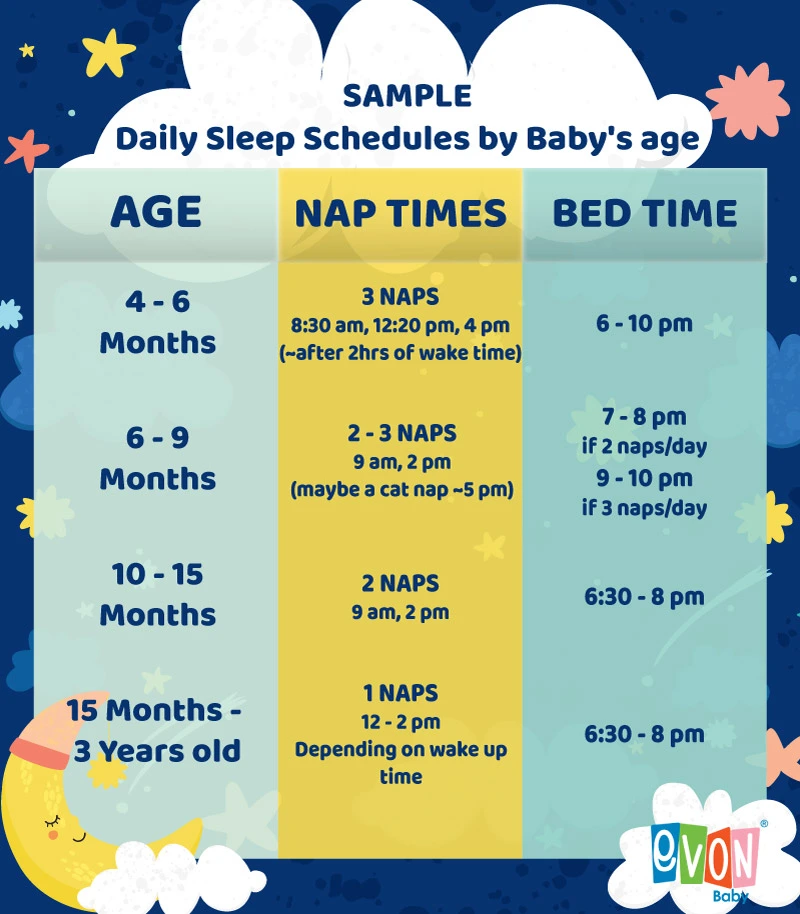When Does The Child’s Need To Nap End?

When Does the Child's Need to Nap End?
With the regularity of the baby’s sleep a few months after birth, besides night sleep, he needs naps during the day, which continues even after the end of the lactation stage, and despite the benefits of naps for children that you will know through this article, at some point the child’s need for it ends.
Read on to learn more about everything related to napping in infants, and how to deal with sleep disorders in children, to ensure a calm and stable sleep for your child.
After birth, the sleep of infants is not regular, they sleep a few hours, then wake up to feed, change the diaper, and so on, but after several months they take naps more than once a day, and when the child is one year old to three years old, the number of naps usually decreases to for one, by the age of five, most children begin to give up their naps, needing only 11-12 hours of sleep each night. However, some children at the age of five may need to nap, but soon after that they will stop, if their nighttime sleep is early enough. About 50% of children give up naps completely by age 4, 70 to 80% give up naps at age 5, and about 20% of kindergarteners only nap on the journey home.
Benefits Of Naps for Toddlers
Having a nap during the day is beneficial for young children for some reasons, which you will learn below:
- Getting enough sleep: young children need more sleep than adults, to grow their body better and faster, so sleeping only during the night is not enough for them, so they take a nap during the day.
- Feeling comfortable: Nap time is useful for children as adults, as this is the time when their bodies and minds rest, and during which they can regain their activity again.
- Helping a good sleep at night: You may be surprised when you know that napping during the day helps the child sleep at night, because excessive fatigue during the day prevents the child from sleeping deeply at the end of the day.
How To Deal with Children's Sleep Disorders
Sleep problems can have negative effects on children’s performance during various activities during the day, in social relationships in general, and academic achievement, so we offer you these tips to improve your child’s sleep and reduce the incidence of sleep disturbances:
- Set a regular bedtime every night, and do not give up or change it, and even on the weekend, the time for sleeping or waking up should not be more than an hour early or later than the usual routine.
- Establish a relaxing bedtime routine, such as giving your child a warm bath or reading a story. Avoid giving children large meals too close to bedtime.
- Do not give your child any food or drinks containing caffeine less than six hours before bedtime.
- Make sure that the temperature in the bedroom is comfortable, and that the room is dark enough for the baby to sleep.
- Ensure that the noise level in the house is low.
- Make playtime after dinner a relaxing time, because too much activity near bedtime can keep children alert.
- Turn off television and video games at least one hour before bedtime.
- Get your child back to sleep in his room, after you do his bedtime routine with him.
- Put the child to bed when he seems tired and sleepy, rather than sleeping in your arms or in another room.
- Consult a doctor if these tips don't help, or if you need additional guidance.
In conclusion, my dear, after you know everything about the child's need for a nap, you must bear in mind that every child is different from others, and who can give up naps at a certain stage, it may be prolonged in another. Our children are the most precious thing we have.
Evon baby We help all mothers with the best tips and experiences to take care of children and take care of their health in the little one’s care department.

